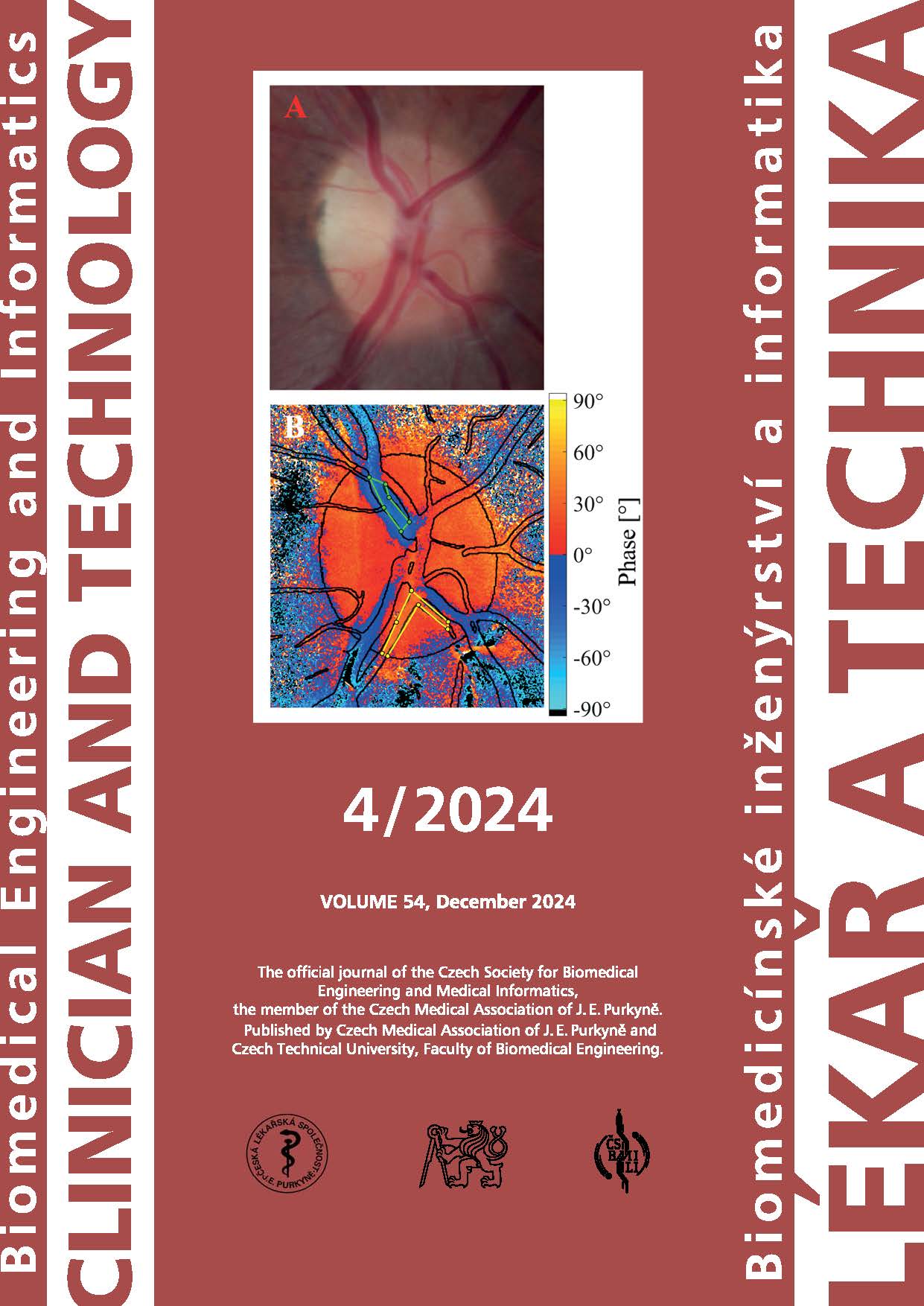ELICITATION WITHIN EHTA: POTENTIAL EFFICACY OF MELATONIN MEDICATION FOR STEMI PATIENTS WITH DETECTED HIGH RISK OF REPERFUSION VENTRICULAR FIBRILLATION DURING PCI
DOI:
https://doi.org/10.14311/CTJ.2024.4.01Abstract
Patients with acute ST-segment elevation myocardial infarction (STEMI) have a high risk of ventricular fibrillation. The aim of the study is to determine an unknown parameter of the new diagnostic cardiology technology model created within eHTA, effectiveness of intravenous administration of high doses of melatonin (4mg/kg) before/during PCI as protective medication in STEMI patients with a diagnosed by new technology high risk of ventricular fibrillation at reperfusion using expert elicitation. Ten experts took part in the elicitation and filled out prepared questionnaire, which included experimental evidence for antiarrhythmic action of melatonin, including cellular mechanisms. They expressed their opinions on the potential effectiveness of medication using numerical method and also answered questions about the suitability of the dosage, adverse effects and the risk-benefit ratio. Experts' answers to the main research question were weighted based on their experience. Elicitation revealed the effectiveness value of 71.82% for the tested medication. Eighty percent of experts agreed that the dose is adequate, that side effects will be minimal, and that the benefits of such therapy outweigh possible risks. Results of this study will be applied for eHTA of novel diagnostic technology in cardiology and will help its manufacturer to evaluate the clinical effectiveness of the technology, find the right direction to complete the design and development of medical device, achieve optimal efficiency, present the concept and find investors, prepare for clinical evaluation, CE certification and inclusion to reimbursement system.
Downloads
Additional Files
Published
Issue
Section
License
Copyright (c) 2025 Marija Gorelova, Ksenia Sedova, Aleksandra Durkina, Peter Kneppo

This work is licensed under a Creative Commons Attribution 4.0 International License.
Authors who publish with this journal agree to the following terms:
- Authors retain copyright and grant the journal right of the first publication with the work simultaneously licensed under a Creative Commons Attribution License (https://creativecommons.org/licenses/by/4.0/) that allows others to share the work with an acknowledgment of the work's authorship and initial publication in CTJ.
- Authors are able to enter into separate, additional contractual arrangements for the non-exclusive distribution of the journal’s published version of the work (e.g., post it to an institutional repository or publish it in a book), with an acknowledgment of its initial publication in this journal.
- Authors are permitted and encouraged to post their work online (e.g., in institutional repositories or on their website or ResearchGate) prior to and during the submission process, as it can lead to productive exchanges.
CTJ requires that all of the content of the manuscript has been created by its respective authors or that permission to use a copyrighted material has been obtained by the authors before submitting the manuscript to CTJ. CTJ requires that authors have not used any copyrighted material illegally, as for example a picture from another journal or book, a photo, etc. It is the author’s responsibility to use only materials not violating the copyright law. When in doubt, CTJ may ask the authors to supply the pertinent permission or agreement about the use of a copyrighted material.
The opinions expressed in CTJ articles are those of authors and do not necessarily reflect the views of the publishers or the Czech Society for Biomedical Engineering and Medical Informatics.


